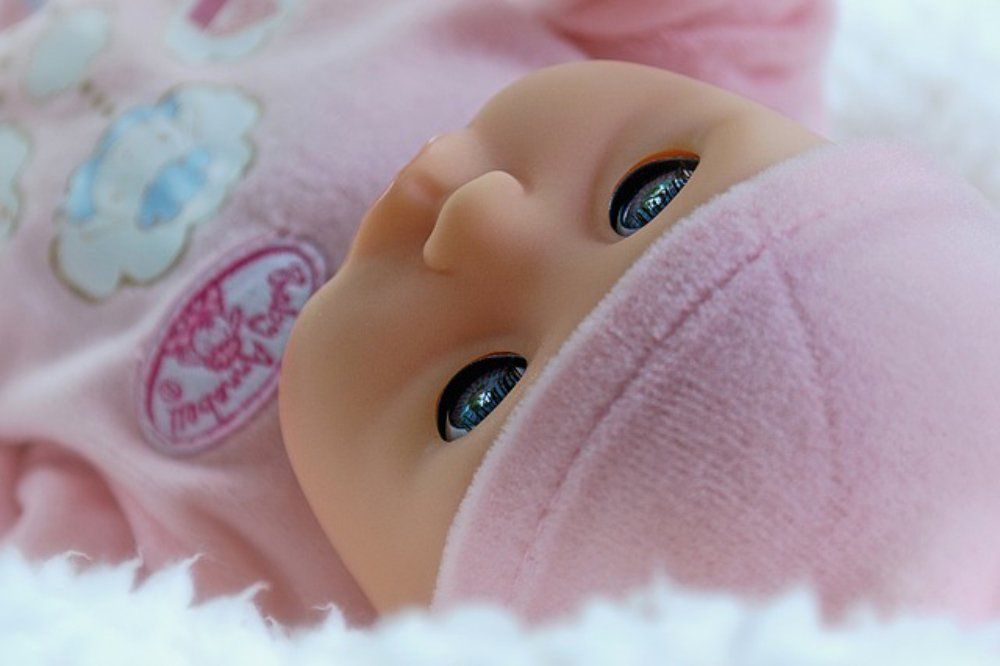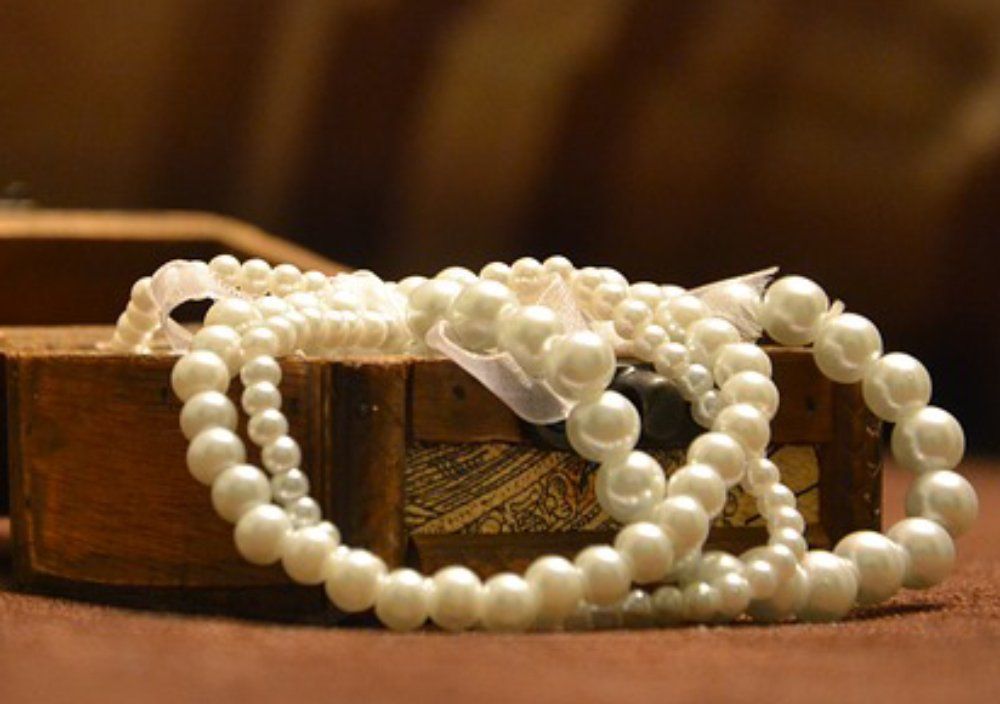
There was an occasion in the life of the apostle Paul when God took away something very precious to him, an event that seemed to threaten his whole future. Where would happiness be without this? How could he survive and accomplish anything for God without this?
So the apostle asked God earnestly to return this thing to him. He had a session of prayer focusing on this loss and, when there was no answer, another session, and then a third. Finally the answer came. ‘My grace is sufficient for you, Paul. You can live without this. You will learn contentment in its absence. I have better plans for you than you have for yourself’.
The pearl necklace
There was once a cheerful girl with bouncy golden curls who was almost five. Waiting with her mother at a checkout stand, she saw them; a circle of glistening white pearls in a pink box. ‘Oh please, Mummy. Can I have them? Please, Mummy, please!’ Quickly the mother checked the back of the little foil box and then looked back into the pleading blue eyes of her little girl’s upturned face. ‘£4.95. That’s almost five pounds. If you really want them, I’ll think of some extra chores for you to do, and in no time you can save enough money to buy them for yourself. Your birthday is only a week away, and you might get another pound or two from Grandma’.

As soon as Jenny got home, she emptied her penny bank and counted out seventeen pence. After dinner, she did more than her share of chores, and she went to the neighbour, Mrs James, and asked if she could pull out dandelions for ten pence. On her birthday, Grandma did give her another two pounds and her mother gave her two pounds too. At last she had enough money to buy the necklace.
Do you love me?
Jenny loved her pearls. They made her feel dressed up and grown up. She wore them everywhere – even to bed. The only time she took them off was when she went swimming or had a bath. Mother said if they got wet, they might turn her neck green!

Jenny had a very loving father, and every night when she was ready for bed, he would stop whatever he was doing and come upstairs to read her a story. One night when he finished the story, he asked Jenny, ‘Do you love me?’ ‘Oh yes, Daddy. You know that I love you’. ‘Then give me your pearls’, he said.
‘Oh, Daddy, not my pearls. But you can have Princess – the white horse from my collection. The one with the pink tail. Remember, Daddy? The one you gave me. She’s my favourite’.
‘That’s okay, Honey. Daddy loves you. Good night’. And he brushed her cheek with a kiss.
About a week later, after the story time, Jenny’s daddy asked again, ‘Do you love me?’ ‘Daddy, you know I love you’. ‘Then give me your pearls’, he asked.

‘Oh daddy, not my pearls. But you can have my baby doll. The brand new one I got for my birthday. She is so beautiful and you can have the yellow blanket that matches her sleeper’.
‘That’s okay. Sleep well. God bless you, little one. Daddy loves you’. And as always, he gave her a gentle kiss.
A few nights later when he came in, Jenny was sitting on her bed with her legs crossed Indian-style. As he came close, he noticed her chin was trembling and a silent tear rolled down her cheek.
‘What is it, Jenny? What’s the matter?’ Jenny didn’t say anything but lifted her little hand up to her father. And when she opened it, there was her little pearl necklace. With a little quiver, she finally said, ‘Here, daddy. It’s for you’.

No sacrifice
With tears gathering in his own eyes, Jenny’s father reached out with one hand and took the Woolworth’s necklace, and with the other hand reached into his pocket and pulled out a green velvet case. It contained a strand of beautiful genuine pearls. He had had them all the time. He was just waiting for her to give up the £4.95 pearls so he could give her genuine treasure.
This is so like our heavenly Father. There are some things in our lives that we feel are too precious to part with. How can we live without them? That is how we think. But those may be things we have to surrender to our heavenly Father, only to find that he will give us something more precious in their place.
To Thee, Thou dying lamb,
I all things owe;
All that I have and am, and
all I know.
All that I have is now no
longer mine
And I am not my own; Lord,
I am Thine.
How can I, Lord, withhold
life’s brightest hour
From Thee; or gathered gold
or any power?
Why should I keep one
precious thing from Thee,
When Thou hast given
Thine own dear self for me?





